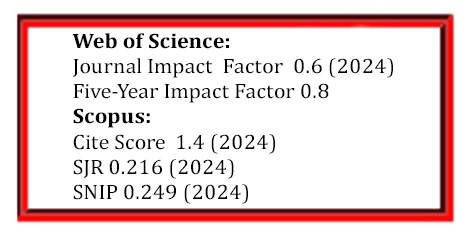Electrochemical and Corrosion Properties of Aluminum Brass in Seawater Desalination Environments
DOI:
https://doi.org/10.5755/j01.ms.23.4.17170Keywords:
desalination, corrosion, electrochemical measurement, SEM, chloride ionAbstract
The corrosion behavior and mechanism of aluminum brass (HAl77-2) in seawater desalination plant were investigated using electrochemical measurement, Scanning Electronic Microscope (SEM) and Energy Dispersive X-ray spectroscopy (EDX) analysis. The electrochemical results revealed that the corrosion of HAl77-2 in the desalination artificial seawater depended on chloride ion concentrations, displaying a maximum with a chloride ion concentration of 2.3 wt.%. Corrosion rate of HAl77-2 initial increased and subsequently decreased with the increasing of chloride ion concentration. Moreover, corrosion of HAl77-2 becomes more severe when temperature rises. The above results obtained by electrochemical impedance spectroscopy and potentiodynamic polarization tests were in a good agreement. The results of SEM and EDX methods showed selective localized corrosion appeared remarkably on the surface of HAl77-2.
Downloads
Published
Issue
Section
License
The copyrights for articles in this journal are retained by the author(s), with first publication rights granted to the journal. By virtue of their appearance in this open-access journal, articles are free to use with proper attribution in educational and other non-commercial settings.



